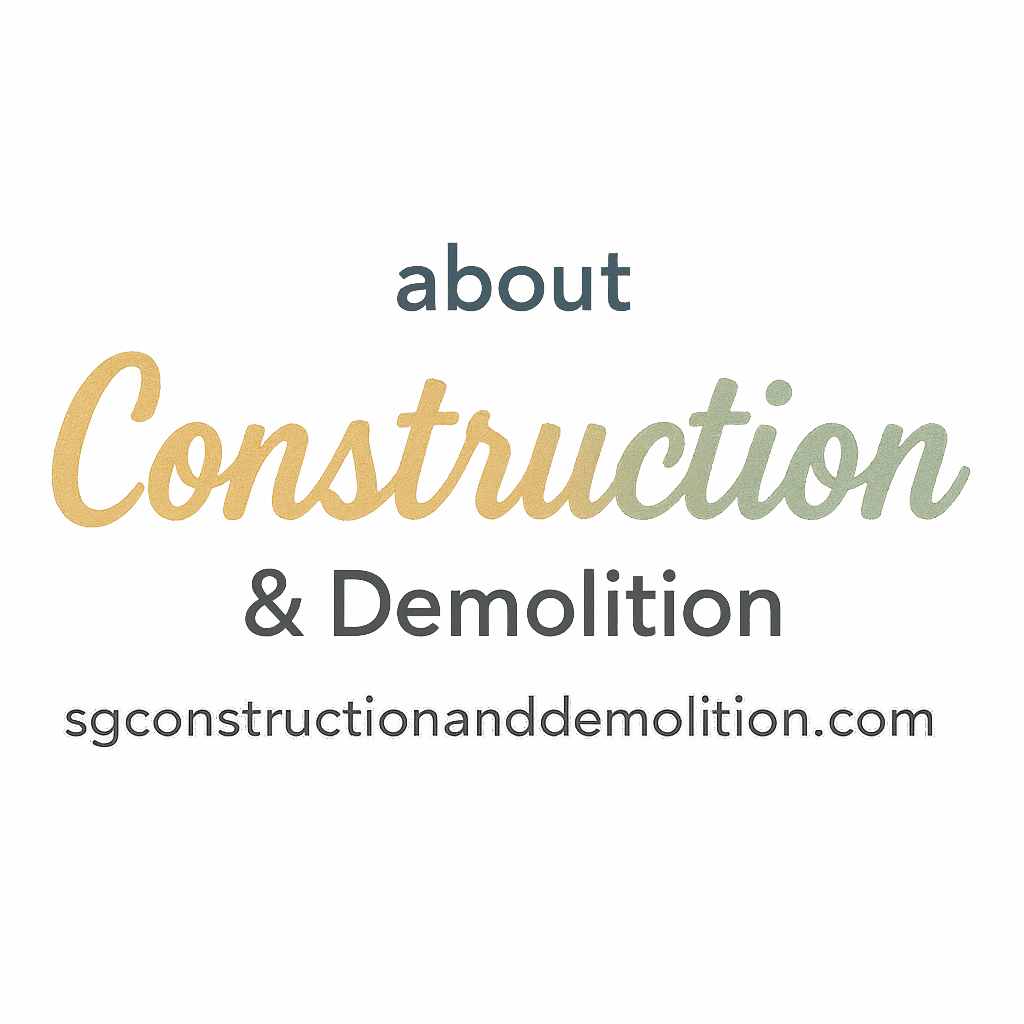Introduction
Ever wonder why some construction projects glide to completion like clockwork, while others crumble into chaos? The difference almost always boils down to one thing: planning. From blueprint to ribbon-cutting, careful planning ensures every step aligns with the next. Whether you’re a beginner or a seasoned pro, understanding the importance of construction planning can be the game-changer your project needs.
Let’s break down the 6 reasons why planning is crucial in construction—and how it impacts everything from your wallet to your workers’ safety.
What Is Construction Planning?
The Basic Definition
Construction planning is the process of defining the project’s goals, timelines, budgets, and methods. It’s the roadmap that takes you from concept to completion.
Types of Planning in Construction
Different types of planning work together to build a successful project.
Strategic Planning
This is the high-level vision—choosing the right location, partners, and overall goals.
Operational Planning
Operational planning breaks strategy into daily tasks: who does what, when, and how.
Scheduling and Resource Planning
This type focuses on allocating time, labor, materials, and equipment efficiently.
Want to learn more about construction basics? Dive into Construction Basics.
Reason 1: Helps Control Costs
Budget Estimation and Cost Forecasting
Budget overruns are every contractor’s nightmare. Planning helps estimate costs accurately and prevents surprises mid-project. A detailed budget plan factors in everything from material costs to labor wages and permits.
Avoiding Hidden Expenses
When you plan ahead, you account for potential cost bumps—like delays or equipment failures. Using smart tools (see Tools & Equipment) can also lower long-term costs.
Want to explore more ways to reduce costs? Check out related posts on project management.
Reason 2: Improves Time Management
Preventing Delays
Missed deadlines are costly. A detailed timeline keeps your team focused and progress steady.
Clear Scheduling and Deadlines
Good planning breaks the project into phases with realistic timeframes. Tools like Gantt charts and digital calendars can help manage it all with ease.
Learn how to set up an efficient timeline in our post on planning & safety.
Reason 3: Enhances Safety on Site
Identifying Hazards Early
Every job site has risks, but planning allows you to spot hazards before they become threats.
Integrating Safety Protocols
With planning, safety isn’t reactive—it’s proactive. PPE requirements, safe tool usage, and emergency protocols are outlined from day one.
Curious about demolition safety? Visit Demolition Techniques for key insights.

Reason 4: Ensures Compliance with Regulations
Navigating Legal Requirements
Building without permits or ignoring local codes can stall or shut down your project. Planning ensures all legal boxes are checked.
Permits, Licenses, and Inspections
A planning phase includes a checklist for all necessary documentation, helping you avoid fines and legal issues later on.
Explore compliance topics further in our planning tag.
Reason 5: Optimizes Resource Allocation
Labor, Materials, and Machinery Efficiency
Effective planning makes sure you have the right resources in the right place at the right time. This avoids downtime and improves efficiency.
Avoiding Resource Conflicts
Planning helps avoid overlap where two teams need the same space or tools at once—saving both time and sanity.
Explore innovations in resource management on our innovation tag.
Reason 6: Boosts Communication & Collaboration
Keeping Everyone on the Same Page
Clear planning provides a shared document that aligns contractors, architects, suppliers, and clients.
Clarifying Roles and Responsibilities
A good plan leaves no room for confusion. Everyone knows their tasks, deadlines, and reporting chains.
Explore smart communication tools and methods at green smart trends.
Common Planning Mistakes in Construction Projects
Underestimating Project Complexity
Many beginners fail to account for how complex even small projects can be. That’s why it’s crucial to plan even for the “what-ifs.”
Failing to Adjust Plans Mid-Project
Construction plans aren’t static. Weather changes, shipment delays, or staff shortages require real-time updates.
Explore myths around planning on our construction misconceptions page.
Best Tools and Methods for Planning Construction Projects
Software and Digital Platforms
Tools like Microsoft Project, Buildertrend, and Procore make scheduling and budget management easier.
Professional Planning Services
Hiring a project planner or construction manager can improve your project success rate—especially for complex builds.
For more planning tech, visit our smart tech tag.
Link Between Planning and Project Success
Project Completion Rates and Planning Quality
Studies show that well-planned projects are 70% more likely to finish on time and within budget. Planning is the difference between a successful build and a frustrating money pit.
Explore trending planning strategies at trends.
Conclusion
There you have it—six rock-solid reasons why planning is the backbone of every successful construction project. From cutting costs and saving time to boosting safety and collaboration, solid planning lays the foundation for everything that follows.
Whether you’re a homeowner dreaming of a renovation or a pro building skyscrapers, planning isn’t optional—it’s essential. So grab that blueprint, sketch your goals, and don’t skip the strategy.
Want to get started on the right foot? Browse more topics at SG Construction and Demolition.
FAQs
1. Why is construction planning important?
Planning ensures a project stays on budget, on schedule, and meets safety and legal requirements.
2. What’s the first step in construction planning?
Define your goals, set a realistic budget, and gather your team.
3. Can poor planning cause project failure?
Absolutely. Lack of planning leads to delays, cost overruns, and safety issues.
4. What tools are best for planning construction projects?
Try platforms like Procore, Buildertrend, or Microsoft Project for effective planning.
5. How do I handle changes during construction?
Stay flexible and have a system in place for updating the plan as things evolve.
6. What if my budget is too small?
Detailed planning helps identify where you can cut costs without sacrificing quality.
7. Where can I learn more about beginner planning tips?
Visit our Beginner’s Tag for more planning advice.


